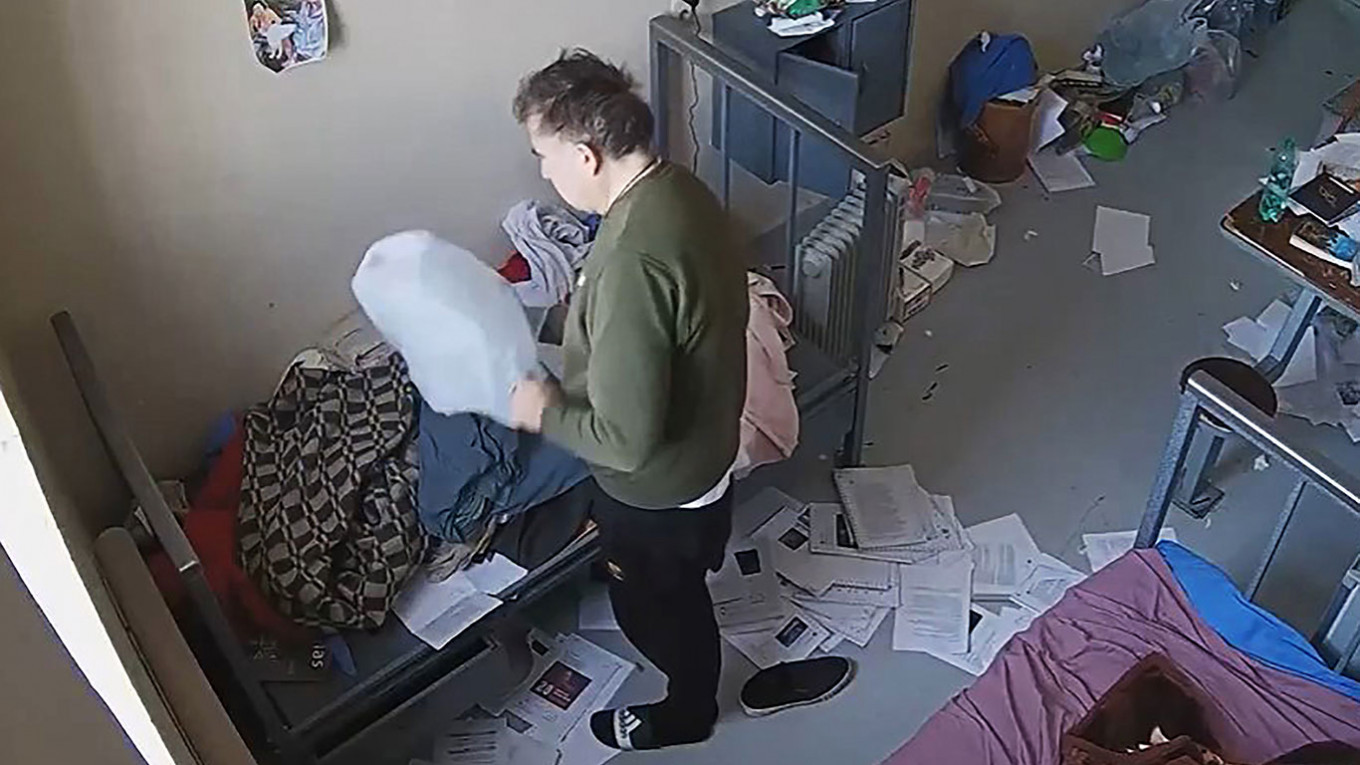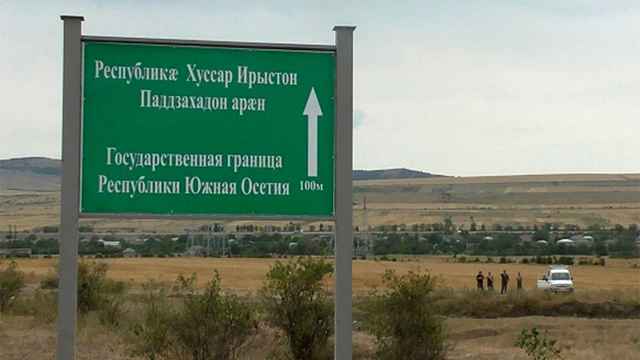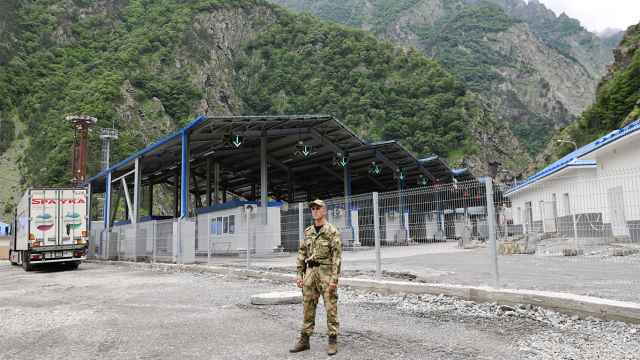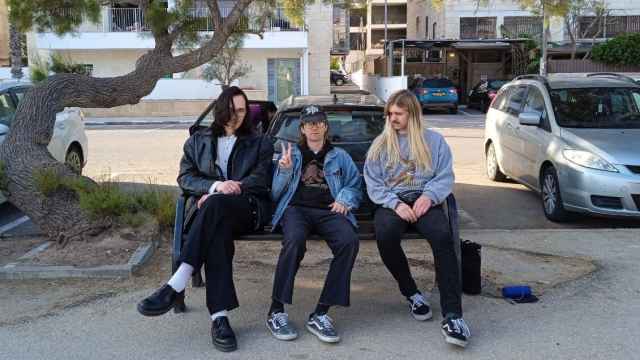Georgia's ex-leader Mikheil Saakashvili, who has been on hunger strike for 50 days, risks death if he is not transferred from a prison hospital to a regular clinic, a doctor who examined him said Friday.
The warning comes a day after Saakashvili — Georgia's president between 2004 and 2013 — fainted and was placed in an intensive care ward.
He launched a hunger strike after being imprisoned upon his return from exile in Ukraine on Oct. 1, saying the arrest was political.
Doctor Giorgi Grigolia told AFP that Saakashvili's condition was "life-threatening" and that "he must be moved to a civilian clinic without delay."
He saw Saakashvili late on Thursday after he fainted.
The doctor cited a number of neurological and heart conditions that "could become irreversible, fatal without proper care, which is impossible in the medical facility where he is currently being treated."
Grigolia is part of a council of medics set up by ombudsperson Nino Lomjaria.
On Wednesday the council said Saakashvili's "current status is assessed as critical" and that he faced a risk of fatal complications in the "immediate future."
The prison hospital where Saakashvili is being treated fails to meet his medical needs, it added, calling for his immediate transfer to a civilian clinic.
Georgian authorities have so far rejected recommendations from the medics.
A senior government official told AFP on the condition of anonymity that "at the moment, there are no plans to move Saakashvili from the penitentiary hospital."
Saakashvili's lawyer Dito Sadzaglishvili said the country's prison service was "guided by political motives, rather than medical considerations."
"Despite repeated calls by doctors, the government is denying Saakashvili his right to proper medical care," Sadzaglishvili told AFP.
A spokesman of the United States Department of State, Ned Price, on Thursday night urged Georgian authorities to "treat Mr. Saakashvili fairly and with dignity."
Saakashvili's arrest has deepened a political crisis that erupted after parliamentary polls last year that the opposition denounced as fraudulent.
It has also spurred some of the largest anti-government protests in a decade.
Prime Minister Irakli Garibashvili sparked an uproar recently by saying Saakashvili "has the right to commit suicide."
A Message from The Moscow Times:
Dear readers,
We are facing unprecedented challenges. Russia's Prosecutor General's Office has designated The Moscow Times as an "undesirable" organization, criminalizing our work and putting our staff at risk of prosecution. This follows our earlier unjust labeling as a "foreign agent."
These actions are direct attempts to silence independent journalism in Russia. The authorities claim our work "discredits the decisions of the Russian leadership." We see things differently: we strive to provide accurate, unbiased reporting on Russia.
We, the journalists of The Moscow Times, refuse to be silenced. But to continue our work, we need your help.
Your support, no matter how small, makes a world of difference. If you can, please support us monthly starting from just $2. It's quick to set up, and every contribution makes a significant impact.
By supporting The Moscow Times, you're defending open, independent journalism in the face of repression. Thank you for standing with us.
Remind me later.






